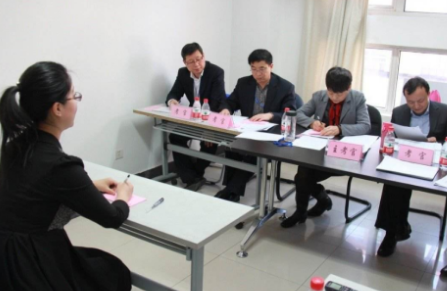2021-11-19 14:00:19|已浏览:159次

考博复试最容易被问到的九个英文提问回答示例:
Question 1:Tell us more about yourself.
Do say:
I’ve always been interested in discovering how things work, but my time as an undergraduate opened my eyes to the excitement and wider benefit of science. I had the chance to do some original research on my Masters and that’s inspired me to take up the challenge of a PhD. I’m also a keen hiker and amateur naturalist, so I’d love to combine my studies here with the chance to visit the local area.
Don't say:
I was born in a small countryside city of Jiangsu Province. My first dog was called Wangcai. At school my best friend was Liming. I like reading and listening to music in my spare time. My favourite colour is blue.
Question 2:What made you choose to do a PhD?
Do say:
I’ve enjoyed my academic work so far, but I really feel I’ve got more to offer as an independent researcher. I’m also passionate about this subject and don’t feel enough attention has been paid to the questions I’m looking to address.
Don't say:
I can’t think of anything to do with my Masters, but my current tutor says I’m clever enough for a PhD.
Question 3:What do you plan to do after you complete your PhD?
Do say:
I feel my PhD project can open up new lines of inquiry for this field and want to use it as the foundation for a fruitful research career. But, I’m also interested in the wider development opportunities included in this doctoral programme. I want to be an academic, but I’m happy to keep other options open.
Don't say:
I expect someone will give me a job doing more research. That’s what PhDs do, right?
Question 4:What are your strengths and weaknesses?
Do say:
I feel that I’m a good written communicator. My existing academic and professional work demonstrates an ability to put forward ideas clearly and concisely. I think this will help me manage the weight of information my PhD research needs to cover and the challenge of producing an effective thesis. But, I’m not always as organised as I’d like to be. I want to address this as part of my postgraduate training and hope to take advantage of classes and development opportunities early in my doctorate.
Don't say:
My greatest strength is that I have no weaknesses! And my only weakness is that I have no strengths. Hang on...
Question 5:Are there any training needs you can identify ahead of your PhD?
Do say:
I’m really interested in communicating my research to a wider audience, but don’t know how best to go about doing this. I think the training module on public engagement will be a big help to me, both academically and more generally.
Don't say:
I’m really bad at interviews. Do you have a class for that?
Question 6:What makes you the right candidate for this PhD?
Do say:
I’ve been interested in this topic since the final year of my undergraduate degree. This lead to my choice of Masters and helped me pick my dissertation topic, which I really enjoyed. I’m really excited to now go on and do some sustained research in this area as a PhD student.
Don't say:
Well, it's quite difficult to find a good job without a doctor's degree...
Question 7:What difficulties do you expect to encounter during this project?
Do say:
I can see that some of the archival material I’ll need to examine for this project may be difficult to access. My first task will be to request permissions, arrange visits and develop a system for recording my findings. I’m hoping to undertake training in archival practices and seek advice from my supervisor as I develop these key skills early in my project.
Don't say:
Yeah, I know a PhD is hard, but I’m just going to see how I get on.
Question 8:Why have you chosen to study a PhD at this university?
Do say:
I’ve looked at lots of opportunities in this area. I feel that this project is the best of its kind, combining a unique research angle with a training programme that will meet my professional needs. I was already familiar with the work of my prospective supervisor and their research has greatly informed my own development as a scholar. I’m eager to combine my work with theirs and make use of the facilities the university has put together for this project.
Don't say:
I did my Masters here and already have a flat in the city.
Question 9:What can you bring to this research group?
Do say:
I’m eager to take advantage of the facilities and expertise this university has to offer. But I also want to contribute with my own expertise and enthusiasm. My previous work has given me the skills to make the most of the material involved in this project and I’m motivated to take up new training opportunities as relevant. I’ll be proud to be a part of this department and would actively seek to represent it through my own publications and other research outputs.
Don't say:
I have a Bachelors and a Masters in this subject so I’m quite clever.
本文由培训无忧网北京新祥旭考研专属课程顾问整理发布,希望对想参加考博培训的同学有所帮助。更多培训课程信息欢迎关注培训无忧网考博培训频道或添加老师微信:15033336050
注:尊重原创文章,转载请注明出处和链接 https://www.pxwy.cn/news-id-4262.html 违者必究!部分文章来源于网络由培训无忧网编辑部人员整理发布,内容真实性请自行核实或联系我们,了解更多相关资讯请关注考博频道查看更多,了解相关专业课程信息您可在线咨询也可免费申请试课。关注官方微信了解更多:150 3333 6050